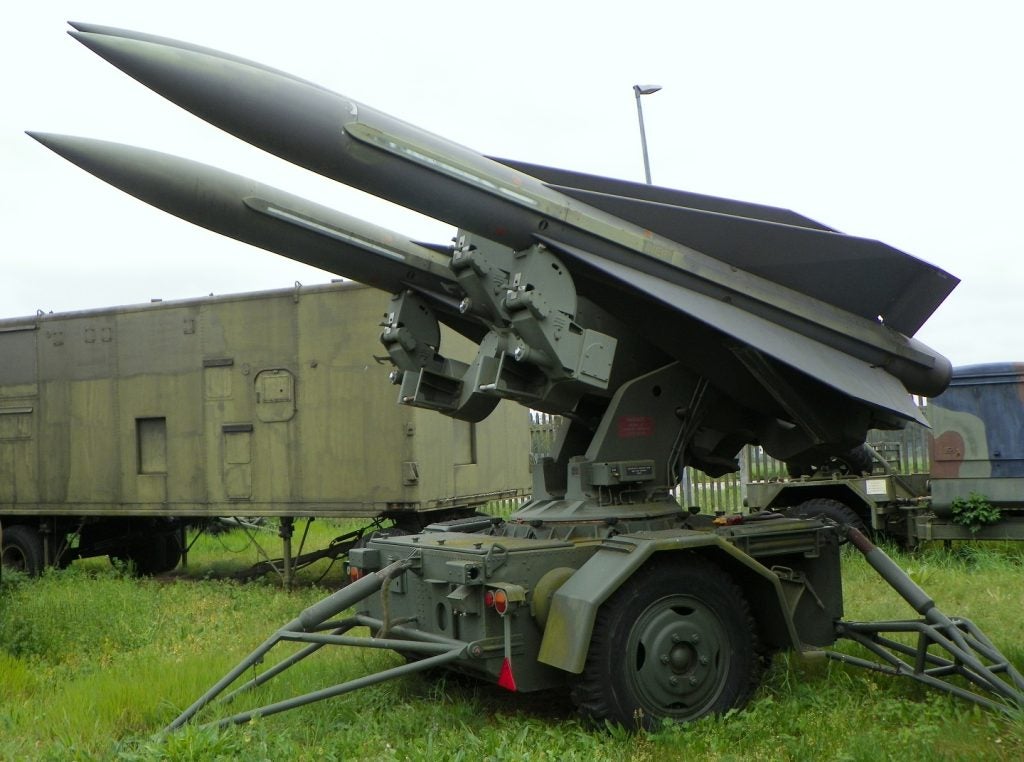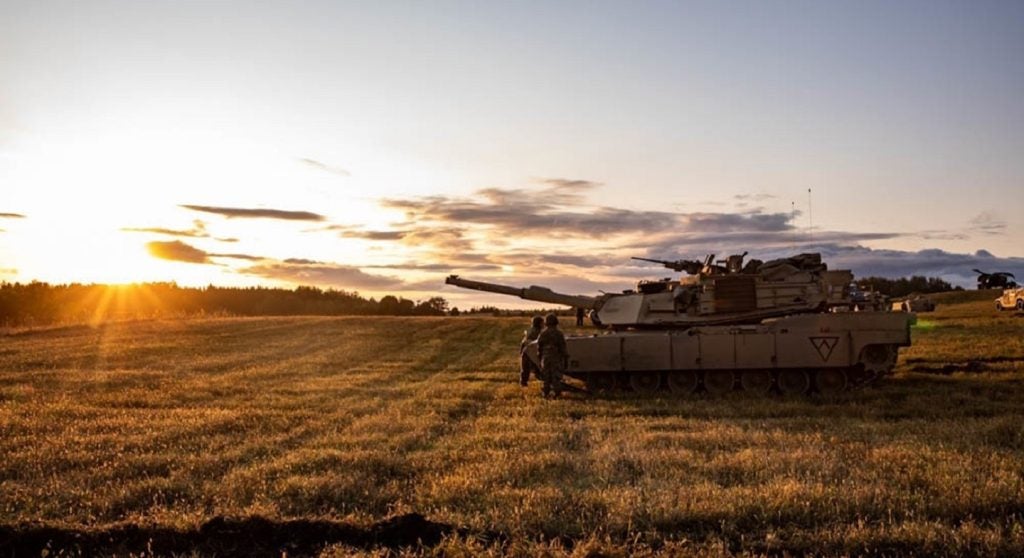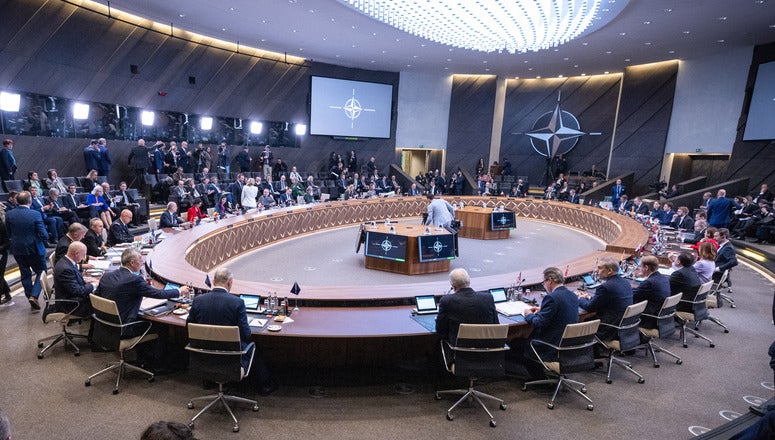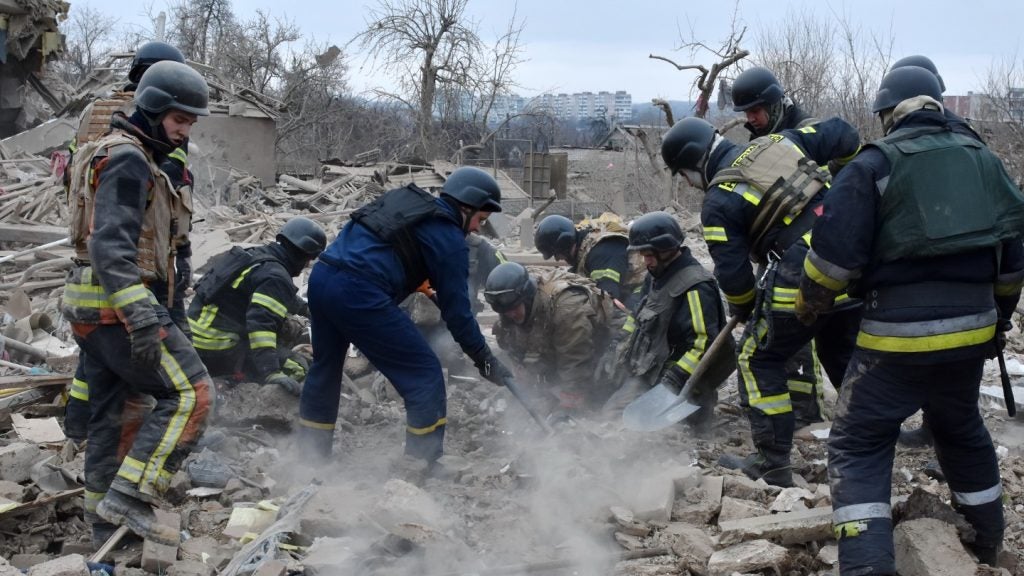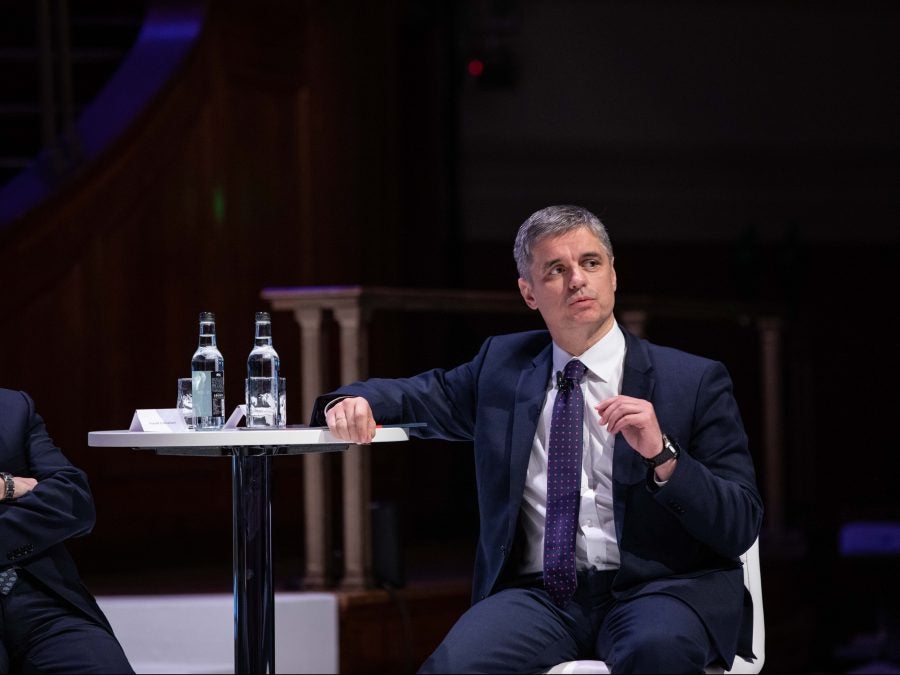
Speaking at NATO Engages in London, Ukraine’s Minister for Foreign Affairs Vadym Prystaiko said that Russia’s actions in Ukraine were similar to terrorism.
During a panel discussion on security at the front-lines of NATO, Prystaiko said that he saw little difference between terrorist actions and Russia’s use of military force to achieve political goals within Eastern Europe.
Responding to a question about the biggest threats facing NATO, and French President Emmanuel Macron saying terrorism was the alliance’s biggest threat, Prystaiko said: “When you asked about what is terrorism or Russia, I don’t actually feel the difference.
“Terrorists by default is someone who is exerting violence to achieve some political something, how can you tell that Russia is not doing the same.”
Prystaiko went on to say: “He [Putin] is killing people in Ukraine, is threatening with biological and chemical weapons around Europe for what, just to waste some of the resources of weapons? No, they [Russia] are trying to achieve some political goals. So this is a terrorist on a very high state level.”
Ukraine has been fighting a bloody civil war against Russian-backed separatists in the Donetsk and Luhansk regions since 2014. So far almost 14,000 people, including almost 3,400 civilians, have been killed. The fighting has also displaced over a million Ukrainians.
How well do you really know your competitors?
Access the most comprehensive Company Profiles on the market, powered by GlobalData. Save hours of research. Gain competitive edge.

Thank you!
Your download email will arrive shortly
Not ready to buy yet? Download a free sample
We are confident about the unique quality of our Company Profiles. However, we want you to make the most beneficial decision for your business, so we offer a free sample that you can download by submitting the below form
By GlobalDataIn 2014 Russia annexed Crimea from Ukraine, using personnel in green uniforms without flag patches dubbed ‘little green men’ to occupy government buildings and surround Ukrainian military posts.
After the NATO event yesterday, Prystaiko repeated his comments tweeting: “Engaged at @NATO Engages in London about Russia threat. Good exchange of thoughts. Had a problem, though, when asked what a real threat for NATO is Russia or terrorism. Gaining a political goal through violence against civilians IS terrorism. Seems, it doesn’t make sense to separate.”
Engaged at @NATO Engages in London about ???????? threat. Good exchange of thoughts. Had a problem, though, when asked what a real threat for NATO is: ???????? or terrorism. Gaining a political goal through violence against civilians IS terrorism. Seems, it doesn’t make sense to separate. pic.twitter.com/rLBMuXpVw0
— Vadym Prystaiko (@VPrystaiko) December 3, 2019
Prystaiko also said that the indecisiveness of NATO in admitting Georgia and Ukraine to the alliance had played a part in Russia’s invasion first of Georgia and Ukraine.
In 2008, at the NATO Summit in Bucharest, the alliance agreed that membership would not be offered to Ukraine and Georgia, however, then-Secretary General Jaap de Hoop Scheffer said the countries could in future join the alliance.
At the time the Russian government said the promise of future membership to Ukraine and Georgia was a “huge strategic mistake”. Later in 2010, Ukraine’s government agreed on a plan to cooperate more closely with NATO.
Talking about NATO membership yesterday, Prystaiko said: “What happened in Bucharest I believe is [a] great mistake that we were not allowed, first of all, we were promised to be a member of NATO, then it was an idea that membership action plan for Ukraine and Georgia is resolved and by the end of the year ministers of foreign affairs had to report to their respective leaders to tell how it’s working.
“It’s been more than ten years and we are not invited, neither to MAP [the Memberships Action Plan] nor to membership, so I believe the indecisiveness of NATO at that time and since then allowed Russia first to invade Georgia and then in six years to come to Ukraine. ”
The debate around the threat Russia poses to NATO has recently been thrust into the spotlight. At a press conference in Paris in late November, Macron said: “Who is our common enemy? What are our common issues? These are questions that deserve clarification and you can see this is a strategic question.
“Is our enemy today Russia, as I sometimes hear? Is it China? Is it the goal of NATO to designate them as enemies? I don’t believe so. Our common enemy today is terrorism, which has hit each of our countries.”



